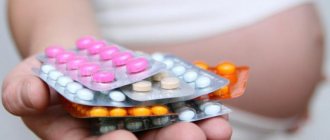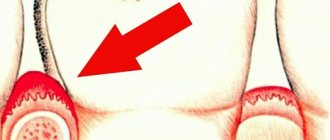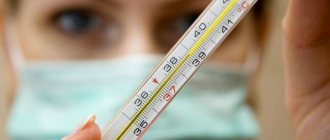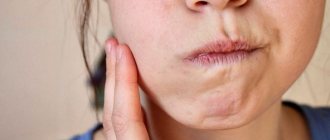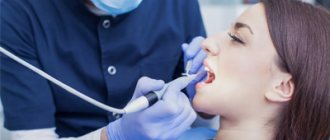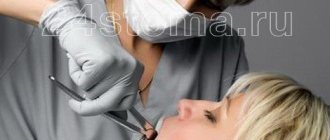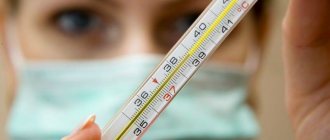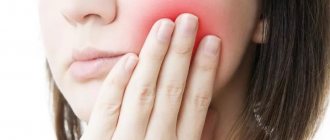Author: Trofimov Andrey Yurievich
What to do after tooth extraction? Every person has gone through this procedure in their life. Doctors always give recommendations, but more often than not, after the pain relief wears off, every second patient forgets about what was told to him in the dental chair. In most cases, after the anesthesia wears off, the pain returns with a vengeance. What should you do if after tooth extraction there is bleeding, the socket, gums become inflamed, or swelling occurs? How to avoid infection and a repeat unpleasant trip to the dentist?
General recommendations
Important restrictions after tooth extraction
Taking medications after tooth extraction
What else should you do after tooth extraction?
Hygiene rules after tooth extraction
What is normal after tooth extraction?
100% Recommendations after tooth extraction
Tooth extraction is, first of all, an operation. Of course, its success depends on the skill of the dentist, but you can speed up the healing process. Follow the doctor’s advice strictly, and very soon you won’t even remember that you visited the dentist’s office. In case you forgot the doctor’s words, here are all the basic recommendations after tooth extraction from the dentists of the ART-Dent clinic.
In what situations should you consult a doctor?
During rehabilitation after tooth extraction, the patient may experience a number of postoperative symptoms: swelling of the cheeks and gums, increased body temperature, pain in the area of the operation, discomfort when opening the mouth. During this period, it is especially important to monitor symptoms that are not the body’s natural reaction to surgery and can lead to serious complications: alveolitis, prolonged bleeding, limited osteomyelitis of the tooth socket, and others.
|
You should immediately consult a doctor if:
- The pain persists for longer than 3 days, intensifies, and radiates to the ear and neck. Painkillers prescribed by a specialist do not help. Normally, the pain should gradually recede and completely disappear after 1-3 days.
- Heavy bleeding does not subside within an hour, but continues several hours after surgery.
- The tampons stopped the bleeding, but after a while the bleeding resumed.
- Swelling and hematomas do not subside, but persist and intensify for 4 days or longer. Or they slept and then appeared again.
- The socket visually looks empty and dry, a blood clot has not formed or its integrity has been compromised - “dry socket” syndrome .
- Instead of a natural white coating, a dark gray, yellowish or greenish coating has formed on the wound.
- Instead of transparent ichor, which can ooze from the wound during the first day, cloudy pus with an unpleasant odor appears.
- Temperatures above 38°C last more than two days in a row. Or she slept, and then got up again.
- Lost appetite, weakness and nausea appeared.
- Painful sensations appeared when breathing and blowing your nose.
- The anesthesia should have worn off 2-3 hours after the operation, but the upper or lower jaw, part of the gums, cheeks or lips were numb for more than a day.
- Pain when opening the mouth and swallowing does not go away even 3–4 days after extraction [1, 2].
In order for tissue restoration to proceed without complications, it is important to carefully monitor the appearance of any symptoms and follow the doctor’s recommendations on when and what to eat after tooth extraction.
List of sources:
- Surgical dentistry and maxillofacial surgery. National leadership / Ed. A. A. Kulakova, T. G. Robustova, A. I. Nerobeeva. - M.: GEOTAR-Media, 2010. - 928 p. — (Series “National Guidelines”) // URL: https://dental-ss.org.ua/load/kniga_stomatologia/khirurgicheskaja/khirurgicheskaja_stomatologija_i_cheljustno_licevaja_khirurgija_nacionalnoe_rukovodstvo/10-1-0-594 (date of access: 07/17/2020)
- Memo of recommendations for patients after extraction (removal) of teeth // Website of the central city dental clinic in Grodno. URL: https://www.cgsp.by/zdorovyj-obraz-zhizni/27-buklety-listovki/280-pamyatka-rekomendatsii-patsientam-posle-ekstraktsii-udaleniya-zubov (date of access: 07/17/2020)
- Rehabilitation in maxillofacial surgery and dentistry: collection. tr. Rep. scientific-practical conf. with international participation in “Parin Readings 2012” (May 3-4, 2012) / under the general. ed. prof. I. O. Pokhodenko-Chudakova; redol. I. M. Bayrikov [and others]. – Minsk: Publishing house. center of BSU, 2012. – 486 p. URL: https://www.bsmu.by/downloads/kafedri/k_stom_hir/sbornik.pdf (access date: 07/17/2020)
What to do with pain
The main fear before tooth extraction is pain. In fact, the operation is painless, because... takes place under anesthesia, which will remain in effect for another two hours after the procedure. Then the pain will begin to increase. Any painkiller already familiar to you or prescribed by a doctor will help eliminate them.
Most often, doctors advise Ketanov, Ketorol or the most common Nurofen. Mild discomfort continues for a couple of days.
With proper tooth extraction, the pain should not intensify, but if this happens, you should definitely consult a doctor.
Prevention
There are a number of actions that the patient must take immediately after this procedure and which will allow him to prevent possible complications.
- How to deal with unpleasant odors in the home of a seriously ill person
- After the extraction, the patient needs to tightly compress the dentition. This is necessary in order to press firmly on the tampon placed in the wound.
- The medicine should not be removed by yourself.
- The hole should not be touched with your tongue or fingers. This is necessary so as not to accidentally damage the blood clot that has formed in the wound.
- If the patient experiences unbearable pain, it can be relieved with the help of analgesics that were recommended by a specialist. The dosage should also be prescribed by the doctor, since each patient reacts individually to the tooth extraction procedure.
- During the period until the wound is completely healed, the patient should stop smoking. This process greatly interferes with the normal healing of the hole.
- If the patient detects symptoms of complications, then, without delay, he should consult a dentist.
You should contact your dentist if complications occur.
The patient needs to be aware of symptoms that may indicate the occurrence of suppuration or any other complications. Having noticed any of the signs, the patient should immediately contact a specialist for advice and subsequent treatment. We must not forget that only proper maintenance of oral hygiene and compliance with all the necessary rules will help the wound heal much faster. You will find out the proportions of soda solution for rinsing teeth in the article.
How to avoid bleeding
Immediately after surgery, the dentist will place a gauze pad in the hole to stop the bleeding. You need to immediately clench your jaw tightly and hold the tampon for at least 20 minutes.
If you have high blood pressure or blood clotting problems, you may need to keep the tampon in place for 40 minutes or even an hour.
During this time, a blood clot forms in the hole. It plays a very important role - it protects the wound from bacteria, food debris, and dental plaque, because... their entry into an empty socket can lead to inflammation and infection.
How to rinse your mouth
Recommendations after molar tooth extraction always include a ban on rinsing on the first day after surgery - this procedure can remove a blood clot from the socket.
In the following days, rinsing with herbs - a decoction of oak bark, chamomile, calendula - will be useful to relieve inflammation and speed up the healing process. Among the medications you can use miramistin, furatsilin or chlorhexidine. A water-salt solution is also suitable.
The rinsing technique is simple: take the solution or decoction into your mouth, hold it for 20 minutes and carefully spit it out. No sudden movements.
Baths should be carried out if:
- an incision was made to expose the gumboil;
- the tooth was removed due to inflammatory processes;
- there are harmful deposits on the teeth and caries;
- removal of the root of a tooth with caries
For procedures with baths, you can use an aqueous solution of chlorhexidine with a concentration of 0.05%. This drug is inexpensive, it can be purchased ready-made, it has excellent antiseptic effects, and tastes bitter. Such procedures must be carried out 3 times a day. The solution must be kept in the mouth for 1 minute.
What and when to eat
You can't eat or drink for the first three hours. First, during anesthesia, you can bite your cheek or tongue. Secondly, the blood clot must harden in the hole.
After this, you can eat, but you should avoid hot, cold, spicy and rough foods. You should absolutely not drink hot drinks: they will not only increase blood flow, but can also dissolve the protective clot.
If the removal was difficult, the dentist will recommend a diet of soft and liquid foods for a day or two.
Chew food with the teeth located on the non-operated side.
What is allowed to eat
One day after the operation, you can eat soft and warm food. It is recommended not to consume fried, spicy and salty foods. This is because such dishes can lead to injury to the socket or irritation of the gums. The temperature of the food consumed should not be high. Recommended drinks to drink:
- dairy products;
- compotes;
- natural juices;
- still mineral water.
It is better to hold off on drinking hot coffee, tea or very cold drinks with ice.
You can cool it, but you can’t heat it up.
A cold compress will help reduce swelling and bleeding. But it should be used only on the recommendation of a doctor. Cold is applied through a thin cloth and held for no more than 25 minutes, otherwise hypothermia will occur, which can lead to unpleasant consequences.
Overheating can lead to inflammation or secondary bleeding. Therefore, for some time you need to forget about a hot bath, solarium.
Is it possible to brush your teeth
Oral hygiene must be observed. But there are a few points worth paying attention to:
- Do not touch the hole with the brush,
- reduce the amount of paste,
- rinse your mouth very carefully and slowly.
And one more thing: never take medications without a doctor’s prescription. In simple cases, medications will not be needed, at most a light pain reliever. In difficult cases, the dentist will prescribe an antibiotic and an antihistamine.
Using these recommendations, you will survive tooth extraction easily and unnoticed. If you have any other questions, call ART Dent dentistry, our specialists will definitely help you.
Before surgery
Removing any tooth is a complex procedure that can only be performed by a dental surgeon. In some budget clinics during the summer holidays, tooth extraction can be entrusted to a dentist-therapist, but the patient should know that specialists in this profile do not have a sufficient level of practical skills, so if there is no urgent indication for surgery, it is better to wait for a highly specialized doctor or go to another dental clinic .
Before the operation, the patient must fill out a questionnaire in which he must indicate all the data that may affect the choice of medications, extraction method and other issues related to this type of dental treatment.
Before tooth extraction, the patient fills out a questionnaire and consults with a doctor
Mandatory information that must be reported to the doctor before surgery:
- blood type and Rh factor;
- having an allergic reaction to chemicals or certain medications;
- past illnesses;
- the fact of donor blood transfusion;
- bad habits (smoking and alcohol abuse).
It is important that the dentist receives reliable information
Note! It is very important to provide only truthful information so that the doctor has a complete understanding of the patient’s health condition and can assess possible risks. It is also necessary to indicate the telephone numbers of relatives with whom the doctor can contact if any complications arise (for example, from the heart and vascular system).
